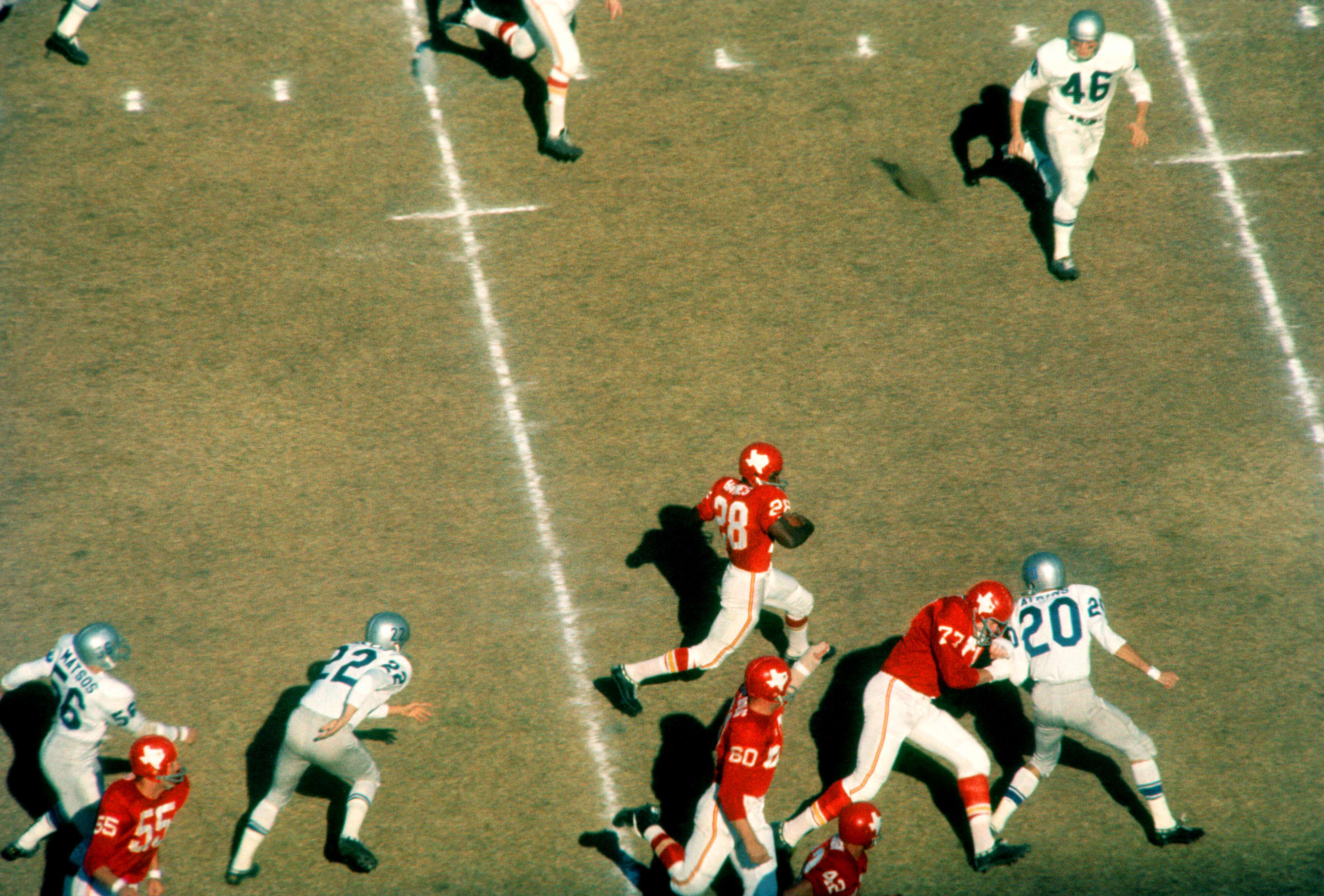Long before the Kansas City Chiefs began their journey towards NFL greatness, they represented the American Football League at the very first Super Bowl in 1967.
Prior to that, the Chiefs were known as the Dallas Texans, a team that played a crucial role in establishing the AFL as a rival to the more established NFL over a decade.
Abner Haynes, a talented running back, was the franchise’s initial star player and the first Player of the Year in AFL history in 1960. Haynes was instrumental in putting the league on the map and continued his legacy as the team transitioned from Dallas in 1962 to Kansas City in 1963.
Tragically, Haynes passed away at the age of 86 on Thursday, leaving behind a remarkable legacy.
Expressing his condolences, Chiefs Chairman and CEO Clark Hunt shared, “Abner was one of the first great stars of the Dallas Texans and the American Football League. In the league’s inaugural season in 1960, Abner not only earned the titles of Rookie of the Year and Player of the Year, but also garnered the respect and admiration of his teammates and fans.”

Haynes dominated the AFL in various categories during the league’s debut season in 1960, excelling in punt return yards, rushing attempts, yards, and touchdowns. Despite the limited passing opportunities of that era, Haynes stood out as one of football’s top players in skill positions and was honored as part of the All-AFL team for three consecutive seasons from 1960 to 1962.
Delving deeper into Haynes’ history, it is revealed that in 1956, he and Leon King made history by becoming the first Black athletes to play major college football in Texas at what is now the University of North Texas. Haynes’ leadership extended beyond the field as he played a pivotal role in integrating the historically white football program, dealing with racism and discrimination with courage.
After his tenure in Kansas City, Haynes spent his final playing seasons with the Denver Broncos. He was later inducted into the North Texas Athletic Hall of Fame in 1986 and the Chiefs Hall of Fame in 1991.
